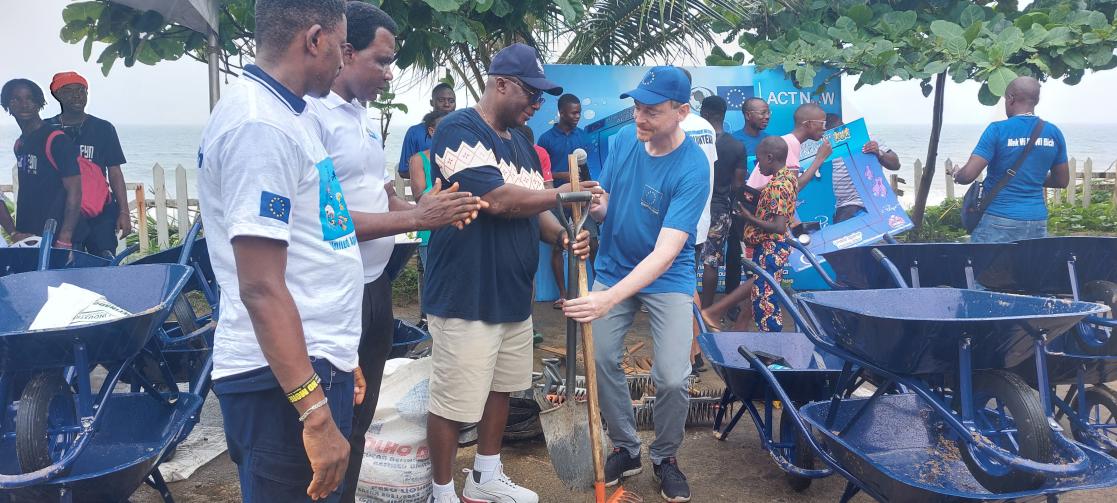#EUBeachCleanup2022: EU Delegation in Sierra Leone and volunteers clean up Aberdeen – Lumley beach
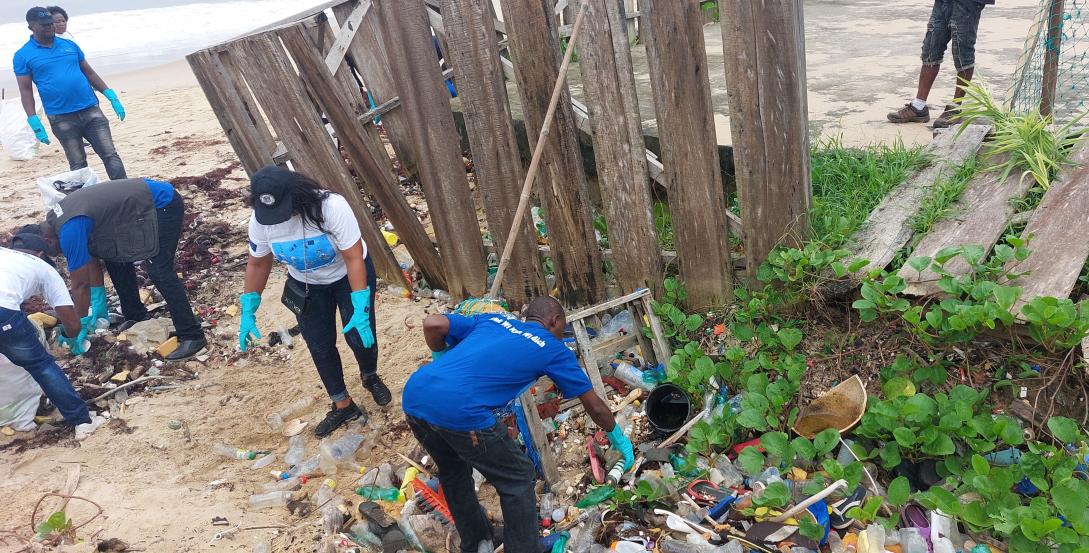
The event saw the active participation of volunteers from civil society, government, diplomatic community, and others, with a particular focus on the youth.
The volunteers were divided into three groups and covered a distance of 4 kilometres on the entire stretch of Aberdeen – Lumley beach. Using recycled thread bags, they collected around 10,000 kilograms of trash, including various kinds of plastics materials, which were sorted out for adequate waste management and processing.
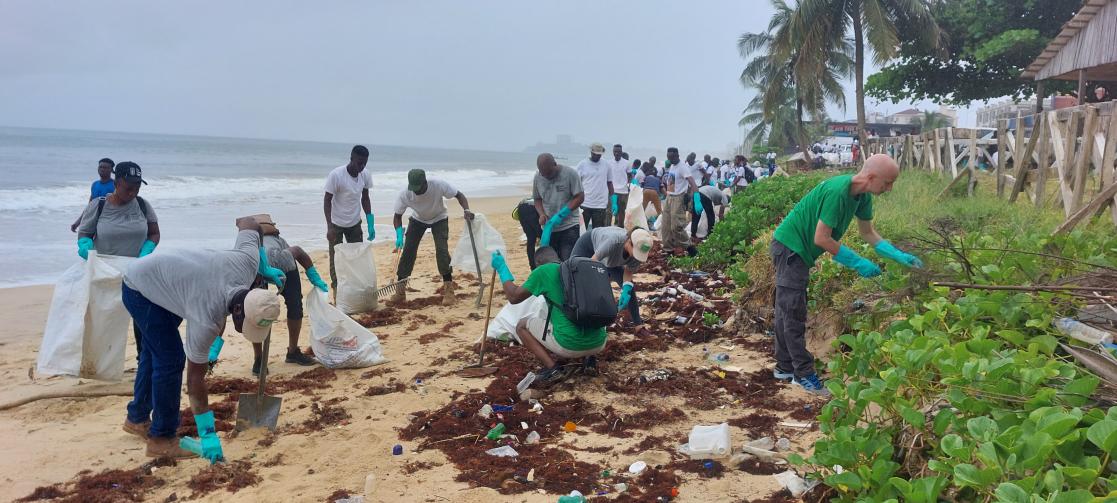
Speaking at the Beach Cleanup event, EU Ambassador Manuel Müller recalled that the exercise takes place every year under the worldwide #EUBeachCleanup campaign, around World Coastal Cleanup Day. EU Delegations reach out to communities and partners to encourage positive global action and to collaborate on environmental sustainability and reduction of plastic pollution. Beach clean-ups are a very important part of this outreach.

Ambassador Müller said: “Each year, 8 million tonnes of plastic end up in the ocean, which is the same as dropping every minute, over an entire year, a full truck of plastic garbage into the ocean. 60% to 80% of marine litter globally is plastics. Plastic litter, which often sea animals mistake for food, is poisoning and degrading marine environment. Ocean pollution has an extreme impact on the environment and marine life, and on our own health and life.”
He continued: “It is part of the global efforts of the European Union to raise awareness about the critical need to protect the environment and keep our oceans clean. The oceans provide the air that we breathe and the food that we eat. Let’s keep our beaches and oceans clean. Let’s reduce plastic pollution of our oceans. Let’s protect marine life and biodiversity, not only for ourselves, but also for our children and future generations. Keeping the beaches, the oceans and the environment clean is everyone's task and responsibility, every day, everywhere. In our houses, by reducing the amount of plastic we use and dispose, and in our neighbourhoods, by keeping the streets and beaches clean. We call on everybody to continue the effort. Every action counts. And any action can make a change in the behaviour of other persons around you. It is our collective responsibility to look after the ocean. We must desist from disposing plastics in the ocean. We need all of you, for a better, cleaner, healthier future.”
Ambassador Müller also recalled that the European Union and EU Member States in Sierra Leone, including France, Germany and Ireland, are actively supporting Sierra Leone in the protection of the environment.
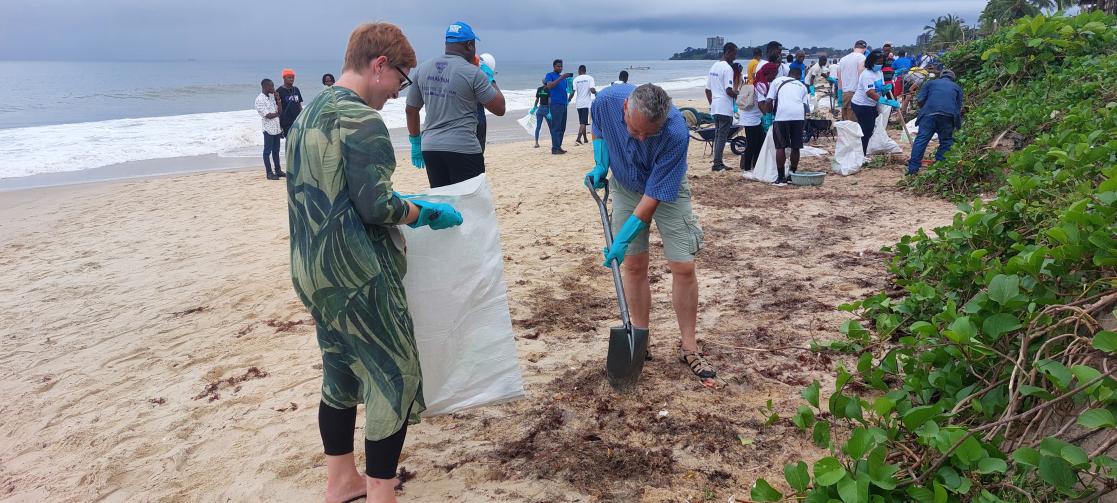
The Deputy General Manager of the National Tourists Board, Jeffery Moijeh, said: “We should remind ourselves that we should always keep our oceans clean. We must change our attitude and not throw trash, especially plastic, in the sea. We should learn how to manage our waste at community level.”
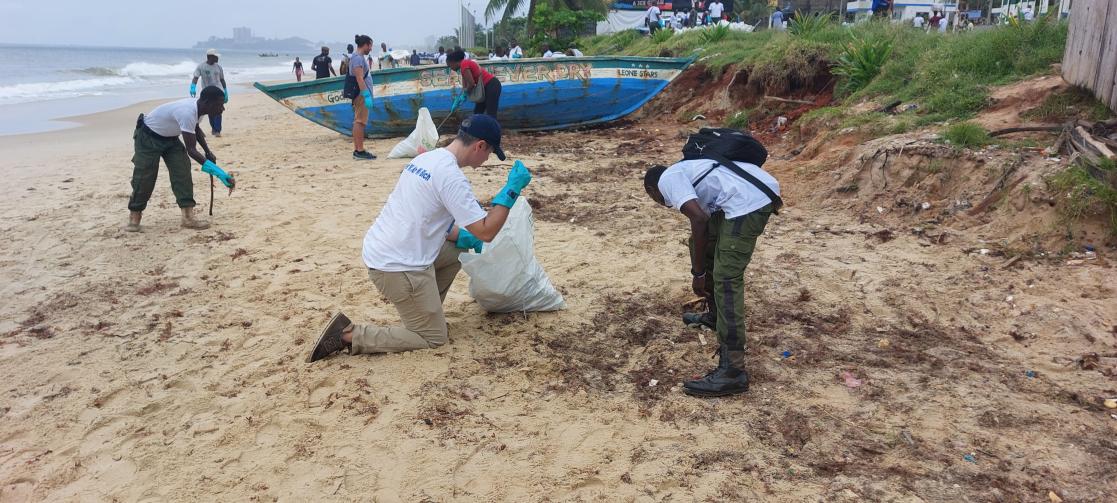
The Deputy Chief Administrator of the Freetown City Council (FCC), Peter Abdul Koroma, said that the initiative of the EU is aligned with the work of the FCC to manage waste disposal and to keep the municipality of Freetown clean.
At the end of the event, Ambassador Manuel Muller handed over the cleaning tools and equipment to the Permanent Secretary of Sierra Leone’s Ministry of Tourism and Culture, to support the National Tourists Board of Sierra Leone in the cleaning of the beach.
